The New Leadership Frontier
The rapid advancement of artificial intelligence isn’t just changing how we work—it’s fundamentally transforming what it means to lead. As we navigate the complexity of 2025’s business landscape, one thing has become abundantly clear: AI literacy is no longer optional for leaders—it’s essential.
But there’s a significant gap emerging. While 75% of workers are already using AI tools in their daily work, a startling third of managers have never used them. This disconnect threatens organisational effectiveness and highlights a critical leadership challenge.
“The greatest danger in times of turbulence is not the turbulence itself, but to act with yesterday’s logic.” — Peter Drucker
This blog post explores what today’s leaders need to know about AI in the workplace, not as a technical manual, but as a strategic compass for those steering organisations through this transformative era.
Beyond AI Literacy: Developing True AI Fluency
The conversation has shifted from simply understanding AI to developing true AI fluency. This means moving beyond basic familiarity to a deeper, more nuanced relationship with artificial intelligence.
AI fluency includes:
- Knowing when to trust AI: Understanding the capabilities and limitations of different AI tools
- Recognising when human judgment is essential: Identifying situations where human insight, creativity, and empathy must take precedence
- Fostering human-AI collaboration: Creating environments where people and technology amplify each other’s strengths
- Making ethical AI decisions: Ensuring AI use aligns with organisational values and societal norms
Leaders who develop this fluency can navigate the AI landscape with confidence, making strategic decisions about implementation, investment, and organizational adaptation.

Five Essential AI Leadership Skills for 2025
To effectively lead in an AI-transformed workplace, today’s leaders need to develop and hone specific skills:
1. Strategic Vision with AI Integration
Great leaders can envision how AI fits into their organisation’s broader strategy. This means identifying opportunities for AI to create competitive advantages, enhance customer experiences, and drive innovation—not just reduce costs.
At LMI-UK, we’ve seen how leadership development programmes that incorporate AI awareness help executives develop this strategic vision.
2. Ethical AI Governance
AI brings complex ethical considerations. Leaders must establish frameworks for responsible AI use, including:
- Data privacy and security protocols
- Bias detection and mitigation strategies
- Transparency in AI-driven decisions
- Clear accountability structures
These frameworks ensure AI serves your organisation’s values and protects its reputation.
3. Change Management in the Age of AI
AI implementation is as much about people as it is about technology. Effective leaders:
- Communicate the “why” behind AI adoption
- Address fears and concerns proactively
- Create transition plans that respect employees
- Celebrate and share AI success stories
One of our clients, featured in our case studies, successfully transformed their organisation by focusing on the human side of technological change.
4. AI Talent Development
The AI skills gap is real and widening. Forward-thinking leaders are:
- Upskilling existing employees for AI collaboration
- Creating learning pathways for different roles
- Recruiting for adaptability and learning agility
- Developing hybrid teams of AI specialists and domain experts
5. Balanced Decision-Making
AI can provide data-driven insights, but leadership requires balancing this information with human judgement. Effective leaders know when to:
- Trust the algorithm
- Question the outputs
- Incorporate human expertise
- Consider factors AI might miss

The Workplace of 2025: AI’s Transformative Impact
AI is reshaping how we work in three fundamental ways:
Reimagined Work Processes
AI assistants now handle routine tasks across organisations—scheduling meetings, summarising documents, managing email triage, and generating first drafts of content. This frees human talent for higher-value work requiring creativity, emotional intelligence, and strategic thinking.
Companies have seen remarkable improvements in operational efficiency after implementing AI tools alongside leadership development.
The Hybrid Workforce
The most effective organisations in 2025 have moved beyond seeing AI as either a threat or a cure-all. Instead, they’ve created hybrid workforces where:
- AI handles routine, repetitive, and computational tasks
- Humans focus on relationship building, creative problem-solving, and ethical decision-making
- Collaboration between humans and AI creates outcomes neither could achieve alone
“The machines will do what they do best, and humans will do what they do best.” — Erik Brynjolfsson, Director of the Stanford Digital Economy Lab
New Leadership Challenges
This transformed workplace creates unique leadership challenges:
- Trust calibration: Knowing when to trust AI recommendations versus human intuition
- Digital empathy: Maintaining human connection in increasingly digital environments
- Continuous adaptation: Keeping pace with rapidly evolving AI capabilities
- Ethical oversight: Ensuring AI aligns with organisational values and societal norms
Five Practical Steps Leaders Should Take Now
- Conduct an AI readiness assessment
Evaluate your organisation’s current AI capabilities, identify gaps, and prioritise opportunities. This creates a foundation for strategic implementation rather than reactive adoption. - Invest in AI education for leadership teams
Leaders can’t guide what they don’t understand. Basic AI literacy for all leaders—regardless of technical background—is essential for effective decision-making. Our Foundations of Success workshops are a good start for thinking about how the goals you might have for incorporating AI leadership modules into your business. - Create an AI ethics committee
Establish a cross-functional team responsible for developing guidelines, reviewing AI implementations, and ensuring alignment with organisational values. - Develop a talent strategy for the AI age
Map out the skills your organisation will need, identify gaps, and create development pathways for existing employees while refining your recruitment approach. - Start small but think big
Begin with pilot projects that demonstrate value while developing a long-term vision for AI transformation. This balances immediate wins with strategic positioning.

The Human Element: Leading with Purpose in the Age of AI
Perhaps the most important insight for leaders is this: As AI transforms the workplace, the distinctly human aspects of leadership become more important, not less.
The organisations thriving in 2025 are those whose leaders have:
- Articulated a compelling purpose that gives meaning to technological transformation
- Built cultures of trust where people feel secure amid change
- Modelled continuous learning as they develop their own AI fluency
- Maintained empathy for the very human challenges of adapting to AI
- Demonstrated ethical leadership in AI implementation decisions
At LMI-UK, we’ve observed this pattern across organisations. Those seeing the greatest success, like Whewell, have paired technological advancement with human-centred leadership development.
Conclusion: The Leadership Imperative
AI in the workplace isn’t primarily a technological challenge—it’s a leadership opportunity. The differentiator between organisations that struggle with AI implementation and those that thrive isn’t the sophistication of their technology, but the quality of their leadership.
Leaders who develop AI fluency, cultivate essential skills, and maintain a human-centred approach will guide their organisations to new heights of innovation, efficiency, and purpose-driven impact.
The question isn’t whether AI will transform your workplace—it already is. The question is whether you, as a leader, will shape that transformation intentionally and responsibly.
At LMI-UK, we’re committed to equipping leaders for this new frontier. Our leadership development programmes have evolved to address the unique challenges of leading in the age of AI, combining timeless leadership principles with cutting-edge insights.
The future belongs to leaders who can harness the power of AI while amplifying the uniquely human qualities that no algorithm can replace: wisdom, empathy, creativity, and moral courage. Will you be among them?
To learn more about developing AI-ready leadership in your organisation, explore our High Impact Productivity sessions or contact us through our website at lmi-uk.com.
